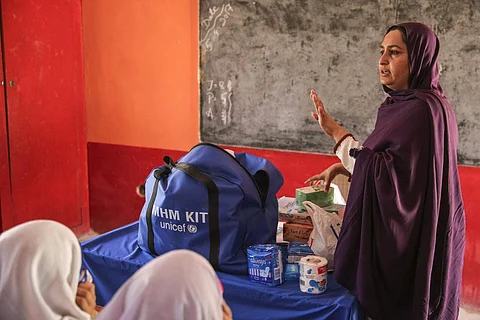

The culture of silence around menstruation has become even more evident in the COVID pandemic, and breaking silence, raising awareness and changing negative social norms is more important now than ever before, UNICEF India Representative Yasmin Ali Haque has said.
On Menstrual Hygiene Day on Thursday, Haque said millions of women and girls from economically disadvantaged sections of the society are finding it difficult to manage their periods safely, hygienically and with dignity. The culture of silence around menstruation has become even more evident in the COVID pandemic. Millions of women and girls from economically disadvantaged sections of the society are finding it difficult to manage their periods safely, hygienically and with dignity," she said.
Many are without work, stranded away from home with little access to menstrual hygiene products, Haque was quoted as saying in a statement by UNICEF. "Breaking the silence, raising awareness and changing negative social norms is more important now than ever before, she added.
The UNICEF-launched week-long campaign #RedDotChallenge for ensuring all girls manage their periods safely and with dignity has reached 3.2 million through social media.
The campaign was launched ahead of the Menstrual Hygiene Day to recognise the importance of menstrual health and hygiene issues and bring to attention the difficulties faced by adolescent girls, further exacerbated amidst the crisis, according to the statement.
UNICEF National Youth Ambassador Hima Das and celebrities Manushi Chillar and Dia Mirza, as well as Aditi Rao Hydari, Diana Penty, Neeru Bajwa and young adults demonstrated their support for the campaign, the statement said. "Digital influencers such as Sejal Kumar, Meghna Kaur, Aashna Shroff and many others also supported the issue," it said.
According to the National Family Health Survey 2015-16, only 48 per cent of rural women were using hygienic menstrual products, compared to 78 per cent in urban areas. The UNICEF said even with higher coverage in urban areas, it doesn't tell the full story about deep gaps in access in slums and especially now with migrant populations on the move due to the pandemic.
